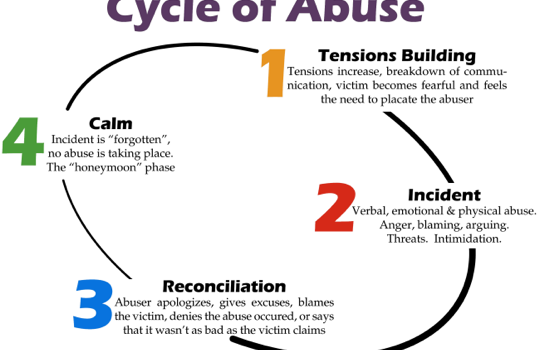

Crossing the Finish Line: The Hope For A HIV Vaccine

HIV Vaccine Research: A Marathon Not a Sprint
Today NMAC recognizes HIV Vaccine Awareness Day. While a HIV vaccine has not yet been discovered, we acknowledge the tremendous progress that has been made in HIV prevention research and look forward to ending the epidemic once and for all.
By Matthew Rose · NMAC Policy and Advocacy Manager
As I reflect on HIV vaccine research I am reminded about running a marathon. In the same ways marathon runners commit to the grueling training, the hard work, and the non-stop commitment towards a single goal, they know that the sweet reward of crossing the finish line will be worth all the struggles, aches, and pain.
 The search for a vaccine for HIV has been a 30-year-long marathon. While we have maintained a sense of urgency in the fight against HIV, we have always known that this process would be a long-term endeavor. Vaccines are some of the most cost-effective prevention strategies. They were essential in eradicating diseases like smallpox, and in bringing other diseases like measles and polio under control. We know that HIV, like many other diseases that have taken decades for a vaccine to be developed, will not go away easily.
The search for a vaccine for HIV has been a 30-year-long marathon. While we have maintained a sense of urgency in the fight against HIV, we have always known that this process would be a long-term endeavor. Vaccines are some of the most cost-effective prevention strategies. They were essential in eradicating diseases like smallpox, and in bringing other diseases like measles and polio under control. We know that HIV, like many other diseases that have taken decades for a vaccine to be developed, will not go away easily.
Yet while no fully licensed preventive HIV vaccine exists, tremendous progress has been made in the realm of HIV research. Scientists continue to push the envelope of creating a fully realized HIV vaccine, and because of many of their developments we have discovered pathways that have led to breakthroughs in creating vaccines for other infectious diseases such as Zika and Ebola.
By teaching the immune system to create responses that prevent HIV from establishing itself in the body, a HIV vaccine will be a prevention option that meets the needs of many communities most vulnerable to HIV; which, in the US, has disproportionately been people of color and women.
We are reaching a new mile marker in this race of a lifetime. For the first time in over a decade, two vaccine trials and another vaccine-related approach are either in or simultaneously moving into efficacy trials. The first, a vaccine trial known as HVTN 702, kicked off in South Africa last October. The other vaccine trial, will test a ‘mosaic’ candidate and starts in sub-Saharan Africa in the coming months. Finally, the antibody-mediated prevention study (the AMP study) is already underway in the Americas, Europe, and Africa. While these trials will only show results in the next several years, their prospects and the scientific findings are exciting. Most importantly, they represent a continued endurance on this long, hard road to discover what might be a large-scale game changer in the way we handle this enduring epidemic.
October. The other vaccine trial, will test a ‘mosaic’ candidate and starts in sub-Saharan Africa in the coming months. Finally, the antibody-mediated prevention study (the AMP study) is already underway in the Americas, Europe, and Africa. While these trials will only show results in the next several years, their prospects and the scientific findings are exciting. Most importantly, they represent a continued endurance on this long, hard road to discover what might be a large-scale game changer in the way we handle this enduring epidemic.
If the HIV epidemic has taught us anything, it is that we need multiple ways to fight the virus. People need options that fit into their lives and the way they live, so that HIV does not have to be a constant worry. Existing HIV prevention and treatment strategies are essential, yet there are many whose lives make it hard for them to use or access these methods; we owe it to them to establish a battery of additional options, including a vaccine. So we will continue until the finish line in the race that is the quest for an HIV vaccine. On the way we will continue to discover things that help fight for our better future: a world that gives all people hope… and options.
Yours in the Struggle,

Matthew Rose
Policy and Advocacy Manager

For more on HIV Vaccine Awareness Day, visit: http://www.avac.org/hvad, and follow the hashtag #HIVvaccineAware
Summit Update
At NMAC, we call the Biomedical HIV Prevention Summit: The Summit. We believe the combination of PrEP (Pre-Exposure Prophylaxis) and TasP(Treatment as Prevention) can build real pathways to end the epidemic. Join us December 4-5, 2017 in New Orleans at the Hilton New Orleans Riverside. Thank you Gilead, Avita, and the Levi Strauss Foundation for your support of the Summit.
Unlike USCA, the conference that celebrates the diversity of issues impacting our movement, the Summit is a single-issue conference focused on biomedical HIV prevention. The meeting looks at implementation science and how to bring the promise of PrEP and TasP to communities hardest hit by HIV.
![]() Last year NMAC held the first Summit. Here feedback we received from Gus Cairns from an article in NAM: aidsmap,
Last year NMAC held the first Summit. Here feedback we received from Gus Cairns from an article in NAM: aidsmap,
“The US National HIV PrEP Summit, which took place in early December in San Francisco, was one of the most extraordinary HIV meetings I have ever been to. This first-ever gathering of 600 people involved in PrEP (pre-exposure prophylaxis) provision in the USA (plus 25 non-US scholarship recipients, mainly from Europe) was already designed to be something different from the standard HIV ‘discover-test-treat’ conference. But fate then intervened to make it happen at an extraordinary time – in between the US election and Donald Trump’s inauguration. The election result totally changed the conference’s atmosphere and meaning.
The PrEP summit was designed as an event of celebration and hope. Its structure, its speakers, even the way the plenary room was designed and the way the speakers dressed, all conveyed one message: we are all in this together, and PrEP really is the game-changer we have been looking for.
Plenary talks were given in the round, from a low stage in the centre of the room. So were panels, with discussants sitting in white designer chairs. Slides were shown, but in the corners of the room behind our heads, so people looked at the speaker instead.
The atmosphere was more akin to gay men’s prevention conferences in the 1990s than treatment conferences. There was little sense of hierarchy or experts-versus-learners. One prominent presenter came out as having just started PrEP, to warm applause. Workers for stern-sounding federal bureaus were hard to tell from community spokespeople. Discussions were facilitated by an ‘MC’, the activist Ken Williams, better known as the blogger ‘Ken Like Barbie’, who has no federal job to lose.
The conference audience was also notably different. A majority of attendees were women, about 50% were black, and flamboyant rather than conservative gayness was much on show. There was also a large, conspicuous and involved trans* contingent, mainly women but some men.”
 Last year the Summit was sold-out and unfortunately we had to turn people away. This year the Summit can accommodate 1000 delegates. Register early because we must close close the meeting when it reaches capacity.
Last year the Summit was sold-out and unfortunately we had to turn people away. This year the Summit can accommodate 1000 delegates. Register early because we must close close the meeting when it reaches capacity.
Important Summit Deadlines
- August 4th Scholarship Deadline
- October 6th Sponsorship Deadline
- November 3rd Early Bird Registration
I look forward to seeing you in New Orleans.
Yours in the struggle,

Moises Agosto
Director of Treatment
202-836-3669
USCA: 30 Rooms Left @ Marriott Marquis
|
|
|
House of Representatives Passes Bill to Take Away Insurance Coverage for Millions
|
|
|
|
And Still We Rise
 At NMAC we would like to thank you for continuing to rise in this current time. With so much on the line, it’s important that we as a community make our voices heard. Today we are calling out for the needs of those vulnerable to and living with HIV and we ask that you join us for the HIV Action Day this Sept 6.
At NMAC we would like to thank you for continuing to rise in this current time. With so much on the line, it’s important that we as a community make our voices heard. Today we are calling out for the needs of those vulnerable to and living with HIV and we ask that you join us for the HIV Action Day this Sept 6.
We know that when we rise, we shape history. But this is not the beginning of a movement, it is a continuation of a struggle that we have consistently advocated for 30 years. We have stood up and defended what is rightfully ours in the journey towards an end of the epidemic. We ask you to join us so that we may rise together as one family calling for the dream of ending this epidemic. We rise for the people we know, for the people that have passed, for those living with, and for those who need our hope.
 We rise to remind others that the call of the HIV community has moved mountains and has changed the course of history. When we rise as a community, we remind others that our work is not done, and that there is still work to do. We are still called to continue the process. Through collaboration and partnership, we can bring an end to this epidemic.
We rise to remind others that the call of the HIV community has moved mountains and has changed the course of history. When we rise as a community, we remind others that our work is not done, and that there is still work to do. We are still called to continue the process. Through collaboration and partnership, we can bring an end to this epidemic.
This goal will not be realized without the collective work of our communities. Together, we must show our power, our strength, our brilliance, our courage, and remind others of a long-held dream that will touch the lives of millions. So, we ask, will you be there on ourHIV Action Day? Will you add your voice with ours and let the country hear a resounding demand for justice from our communities?
 Over the last few months we have seen the kind of engagement that will help move us closer to victory. An engagement, that despite the challenges we continue to face, proves we can make change happen on federal, state, and local levels.
Over the last few months we have seen the kind of engagement that will help move us closer to victory. An engagement, that despite the challenges we continue to face, proves we can make change happen on federal, state, and local levels.
We hope in the spirit of family reunion you will join us on the steps of the Capitol to rise together to speak out at this pivotal moment in our history. For 30 years NMAC has fought for racial justice and equity across the healthcare system to end the epidemic. This year, we rise for people living at the margins who are in most need of our support and ask you to join us as on September 6 when our movement gathers at the Capitol to rise once again.
100 Days: What Are We Fighting For?
 100 Days: What Are We Fighting For?
100 Days: What Are We Fighting For?
It’s the first 100 days of the new administration: what are we fighting for? NMAC’s bottom line is access to healthcare, medication, and wrap-around services for all people living with HIV. Through many administrations, multiple pieces of legislation, and revised strategies, that has always been our guiding principle. NMAC uses access as the litmus test to deal with the myriad of challenges facing our communities.
100 Days into the new Trump Administration and we’ve had to reprogram ourconferences, capacity building, advocacy work, listservs, and messaging. Revising the tone and tenor of our communications has required different messages for constituents vs. the administration. As a movement that depends on government funding, we mustwork with Congress and the Trump Administration. However, as an organization that leads with race, it is in our DNA to speak out for justice. We’ve had to learn to balance these competing needs. Here are some of NMAC’s lessons from the first 100 Days:
- Don’t Panic
- Show Up & Fight
- Hope
Don’t Panic
 Immediately after inauguration, Presidential Executive Orders threw DC into a tailspin. They made it difficult to figure out priorities and very easy to panic. After 100 days, we’ve seen that DC is a very difficult place to change. Many proposals were either tabled or stopped. Democracy is messy and challenging, and that’s exactly what our founders wanted. The initial panic has given way to a focused understanding that we have time.
Immediately after inauguration, Presidential Executive Orders threw DC into a tailspin. They made it difficult to figure out priorities and very easy to panic. After 100 days, we’ve seen that DC is a very difficult place to change. Many proposals were either tabled or stopped. Democracy is messy and challenging, and that’s exactly what our founders wanted. The initial panic has given way to a focused understanding that we have time.
In order to survive, NMAC has learned how to send out “dog whistles” to not put our movement’s funding in the crosshairs. We don’t publicly comment on everything, but that does not mean we aren’t working on critical issues behind the scenes. Part of our response has been to build new partnerships and to operate in different ways. NMAC is part of a group of agencies that has hired a firm to represent us on Capitol Hill. It’s not helpful to share what they do, but please know this group is present in more ways than we publicly discuss.
Show Up & Fight
 From the Women’s March to the congressional town hall meetings on healthcare reform, we’ve come to understand how important it is to show up and speak truth to power. We aren’t sitting on the sidelines hoping to be saved. To end the HIV epidemic, our movement must show up and fight.
From the Women’s March to the congressional town hall meetings on healthcare reform, we’ve come to understand how important it is to show up and speak truth to power. We aren’t sitting on the sidelines hoping to be saved. To end the HIV epidemic, our movement must show up and fight.
The new administration has changed the equation for activism. That’s why this year’s HIV Action Day is so important. Join us September 6th in Washington, DC to make your voice heard. We know that movements that turn out constituents are the movements that make a difference. Your movement needs you!
Hope
 The election threw me for a loop. We are so close to ending the epidemic, yet could that happen without access to healthcare? 100 days into the new administration and I am hopeful that can still be our goal. It’s going to be a struggle and we will not get everything we need, but we will also not lose everything. There are reasons to hope. The new administration has expressed its support of the Ryan White Care Act. People are fighting back for healthcare. Change is coming much slower, that gives us time to continue our work to end the epidemic.
The election threw me for a loop. We are so close to ending the epidemic, yet could that happen without access to healthcare? 100 days into the new administration and I am hopeful that can still be our goal. It’s going to be a struggle and we will not get everything we need, but we will also not lose everything. There are reasons to hope. The new administration has expressed its support of the Ryan White Care Act. People are fighting back for healthcare. Change is coming much slower, that gives us time to continue our work to end the epidemic.
Not only is this NMAC’s 30th anniversary, but I’ve also been its executive director for 27 years and 9 months (but who’s counting). I was there when our movement looked death in the face and laughed. We are stronger than any administration. There is reason to hope. Join us at USCA in September, come to the Summit in December. Your movement needs you and you need your movement.
Yours in the struggle,
Scholarship Deadlines: What You Need to Know!

Scholarship Deadlines: What You Need to Know
NMAC is offering many different scholarships to USCA and the Summit this year. This e-newsletter is meant to help you learn more about the various options we are offering and their deadlines. It will also outline our 2017 priorities to explain how decisions for selection are made.
Thanks to ViiV Healthcare and the Magic Johnson Foundation there will be 30 youth initiative scholarships for USCA. Additionally, Gilead is supporting 50 scholars over 50 living with HIV as well as 100 scholarships for the Biomedical HIV Prevention Summit. Finally, all of the 2017 USCA sponsors will support 150 scholarships for the main meeting. In honor of our 30th Anniversary, this is the largest number of scholarships (330) that NMAC has ever provided.
30th Anniversary Member Priority
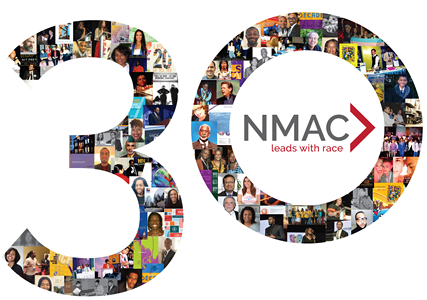 Half of this year’s scholarships are set aside for 30th Anniversary Members. In commemoration of this anniversary, NMAC has created a special 30th Anniversary Membership Rate of $30 for People Living with HIV and Youth Under the age of 25. Additionally, as a special thank you, NMAC is setting aside 50% of all the 2017 scholarships for 30th Anniversary Members. To confirm your membership, please email Aminata Kamara.
Half of this year’s scholarships are set aside for 30th Anniversary Members. In commemoration of this anniversary, NMAC has created a special 30th Anniversary Membership Rate of $30 for People Living with HIV and Youth Under the age of 25. Additionally, as a special thank you, NMAC is setting aside 50% of all the 2017 scholarships for 30th Anniversary Members. To confirm your membership, please email Aminata Kamara.
50 States
Our second priority is regional diversity. One scholarship per state guarantees delegates from all 50 states and the territories. This supports the national vision of our meetings.
Top 20 Cities
 The third priority is to establish scholarships for attendees coming from the 20 cities with the highest incidence of HIV. This objective is meant to ensure active participation from leaders representing those regions that are the most highly impacted by HIV.
The third priority is to establish scholarships for attendees coming from the 20 cities with the highest incidence of HIV. This objective is meant to ensure active participation from leaders representing those regions that are the most highly impacted by HIV.
Racial Diversity
NMAC’s mission is to lead with race to end the HIV epidemic. This means scholarships will be set aside for African Americans, Asian/Pacific Islanders, Latinx, and Native Americans. We believe that we MUST address race if we are to end the HIV epidemic.
New Scholarship Recipients
NMAC is committed to building new leaders. Our final priority is to provide scholarships to new recipients. While not always possible, NMAC hopes to encourage emerging leaders in our efforts to end the epidemic.
Thank you for your support of NMAC. We hope this helps in your scholarship application process.
Yours in the struggle,
Tara Barnes Darby
Conference Director
202-870-0460
NMAC’s New HIV PrEP Navigation Program
NMAC’s New HIV PrEP Navigation Program
|
 For the
For the  USCA’s Opening Reception will be held on Wednesday, September 6th at 6 PM at the Library of Congress. Please schedule your travel to arrive on time for this valuable networking opportunity. We are very pleased to host this reception at the
USCA’s Opening Reception will be held on Wednesday, September 6th at 6 PM at the Library of Congress. Please schedule your travel to arrive on time for this valuable networking opportunity. We are very pleased to host this reception at the  Dr. Laura Cheever, the Associate Administrator for HRSA/HAB will speak at the Federal Plenary scheduled for Saturday, September 9th. She joins already confirmed speakers Dr. Anthony Fauci, NIAID, and Dr. Jonathan Mermin, CDC.
Dr. Laura Cheever, the Associate Administrator for HRSA/HAB will speak at the Federal Plenary scheduled for Saturday, September 9th. She joins already confirmed speakers Dr. Anthony Fauci, NIAID, and Dr. Jonathan Mermin, CDC. The Closing Plenary on Sunday September 10th is a tribute all the women in our movement. Kimberly Miller, Paul Kawata’s Facebook friend, recommended
The Closing Plenary on Sunday September 10th is a tribute all the women in our movement. Kimberly Miller, Paul Kawata’s Facebook friend, recommended



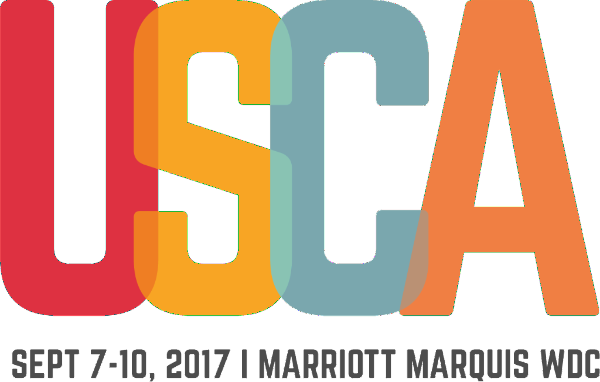
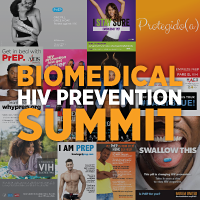
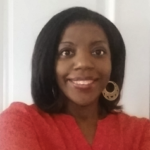

 NMAC is pleased to announce a new initiative that
NMAC is pleased to announce a new initiative that  Tell us about your navigation program and the first 300 constituents who complete the survey will receive a $10 Amazon gift card!! This assessment will help NMAC collect data focused on the professional development needs of HIV navigators and mechanisms that support the successful implementation of HIV PrEP navigation programs. Complete the
Tell us about your navigation program and the first 300 constituents who complete the survey will receive a $10 Amazon gift card!! This assessment will help NMAC collect data focused on the professional development needs of HIV navigators and mechanisms that support the successful implementation of HIV PrEP navigation programs. Complete the